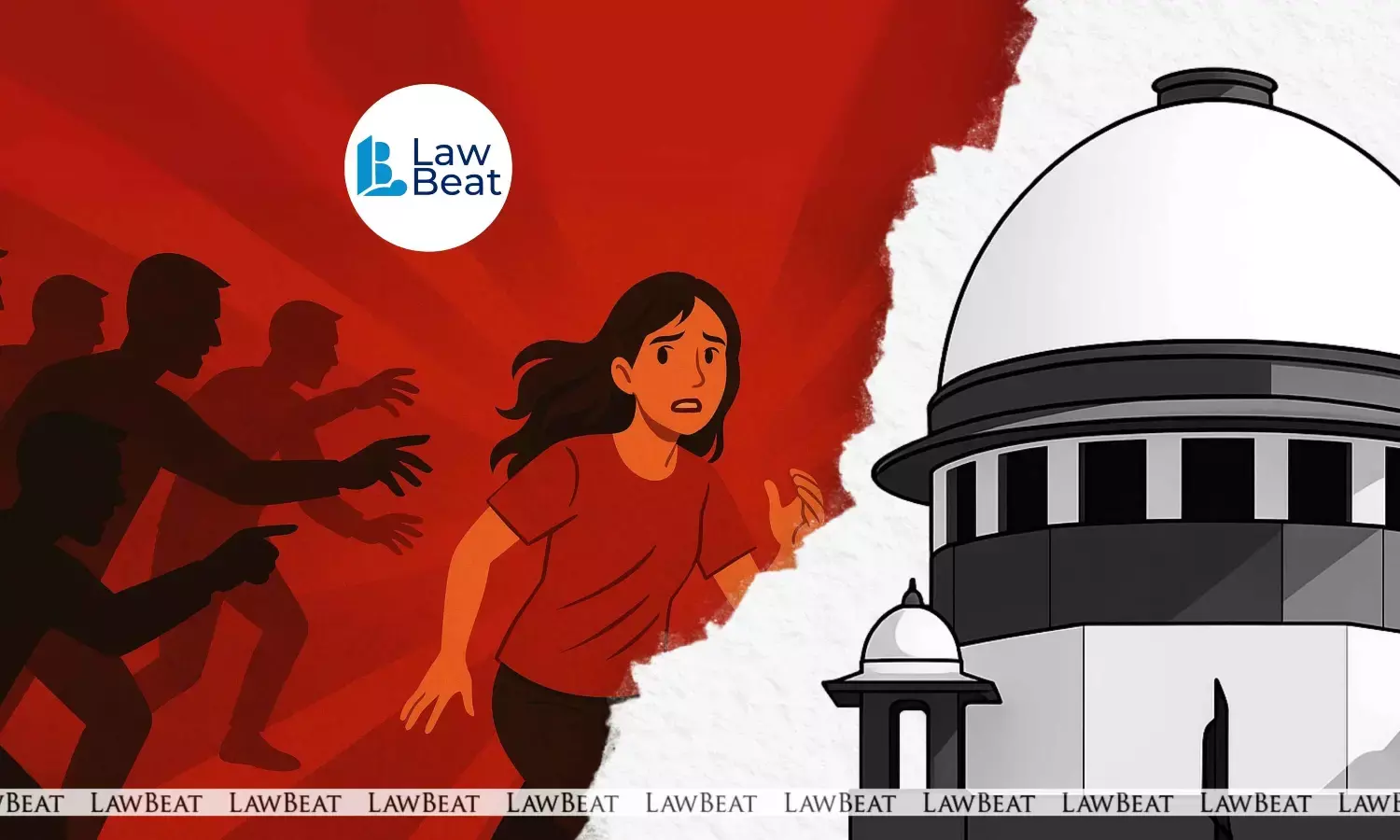Rape by One Enough To Convict All in Gang Rape: Supreme Court

The Supreme Court recently observed that in cases of gang rape, even if the sexual assault is not committed by each person individually, the common intention and joint participation in the act of rape are sufficient to hold each person accountable.
The bench of Justices Sanjay Karol and KV Viswanathan pointed out that Explanation 1 to Section 376(2)(g) of the IPC states that where a woman is raped by one or more in a group of persons acting in furtherance of their common intention, each of the persons shall be deemed to have committed gang rape.
It referred to Pramod Mahto vs. State of Bihar (1989) where the top court held that in cases of gang rape, it is not necessary that the prosecution should adduce clinching proof of complete act of rape by each one of the accused on the victim/victims.
Court further highlighted that in Ashok Kumar vs. State of Haryana (2003), it was held that this provision embodies a principle of joint liability and the essence of that liability is the existence of common intention.
"In view of this, it is very clear that in a case of gang rape under Section 376(2)(g), an act by one is enough to render all in the gang for punishment as long as they have acted in furtherance of the common intention," the bench held.
It added that "common intention is implicit in the charge of Section 376(2)(g) itself and all that is needed is evidence to show the existence of common intention".
Court made the observations while hearing an appeal filed by one Raju @ Umakant, challenging a judgment of the Madhya Pradesh High Court's division bench at Jabalpur. The high court had upheld his conviction and sentence handed down by the Special Judge under the SC/ST (Prevention of Atrocities) Act, Katni, Madhya Pradesh. He had been found guilty of offences under Sections 366 (kidnapping), 376(2)(g) (gang rape), and 342 (wrongful confinement) of the Indian Penal Code, 1860, as well as Section 3(2)(v) of the Scheduled Castes and Scheduled Tribes (Prevention of Atrocities) Act, 1989. For the offence of gang rape, Raju was sentenced to rigorous imprisonment for life.
The co-accused in the case, Jalandhar Kol, was sentenced to 10 years of rigorous imprisonment under Section 376(2)(g) IPC.
According to the prosecution, a man lodged a missing persons report on June 24, 2004, at the Kymore Police Station in Katni district, stating that his daughter had not returned home after going to attend a wedding procession (‘barat’). Following the registration of the report, the police began an investigation. Four days later, on June 28, 2004, the girl was recovered from the house of the appellant’s alleged wife. The recovery memo stated that the girl was initially kept at the appellant’s house and was later taken by his alleged wife to her own residence.
Based on the girl's statement, an FIR was registered the same day. Subsequently, on June 30, 2004, another complaint was recorded after the girl appeared before the DSP. Notably, there were discrepancies between the FIR and the later complaint. While the FIR mentioned only Jalandhar as the perpetrator and Raju as an accomplice, the girl’s testimony in court stated that both accused had kidnapped and raped her.
The Supreme Court found the survivor's deposition before the trial court to be credible and of such probative value that it required no further corroboration. Court rejected the defence's argument regarding contradictions in the FIR and later complaint, observing that "minor contradictions in the evidence did not detract from her clinching testimony."
The bench held that the girl had clearly, consistently, and convincingly deposed about the rape committed by both Raju and Jalandhar. It also noted that under Section 376(2)(g) IPC, the act of one member of a group is sufficient to make all liable if they acted in furtherance of a common intention. The facts of the case, the court said, demonstrated that both accused had acted in concert with the shared intent to sexually assault the girl.
Accordingly, court maintained Raju's conviction under Sections 366, 342, and 376(2)(g) of the IPC. However, it set aside his conviction under Section 3(2)(v) of the SC/ST Act, finding no evidence to suggest that the offence was committed on account of the survivor’s caste identity.
On the question of sentencing, court modified the life sentence awarded to Raju and reduced it to 10 years of rigorous imprisonment, bringing it in line with the sentence imposed on co-accused Jalandhar Kol.
Case Title: Raju @ Umakant vs State of MP
Download judgment here
